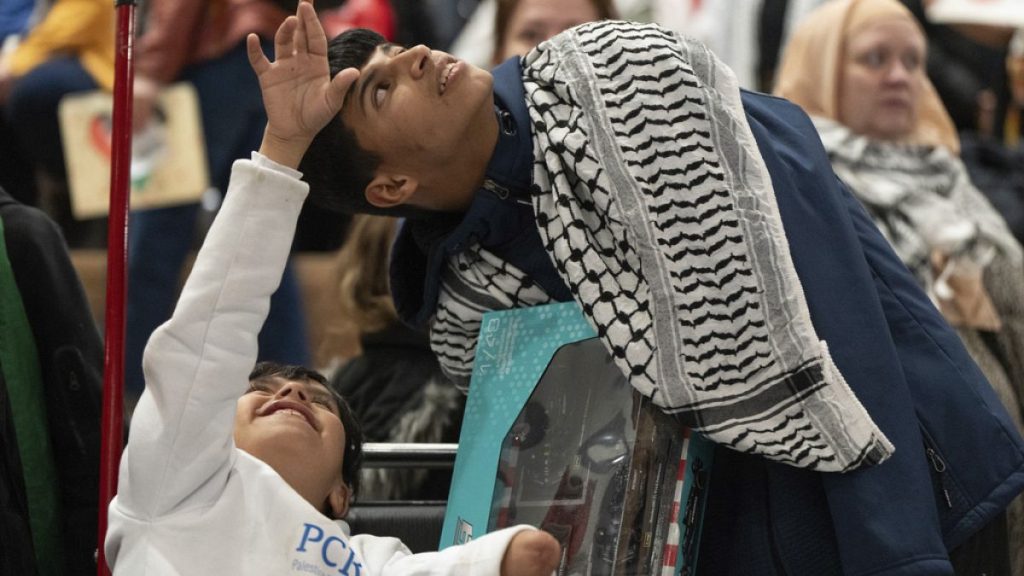On a recent Monday, Nasser, a young survivor of the Israel-Gaza conflict, and his mother arrived in Portland, Oregon, seeking medical care. This trip followed a devastating experience in which Nasser lost two of his sisters in the conflict. Tragically, Nasser suffered severe injuries as well, resulting in the amputation of one of his hands. Despite the overwhelming grief and trauma, Nasser and his mother were hopeful about the medical treatment they would receive in the United States.
The impact of the Israel-Gaza conflict on civilians has been profound, with countless families bearing the brunt of violence and loss. Nasser’s story is just one of many illustrating the heartbreaking toll of war on innocent lives. The emotional and psychological effects are deeply felt, not only through physical injuries but also through the trauma caused by losing loved ones. For Nasser and his mother, the journey to Portland symbolizes not just a search for medical assistance but a glimmer of hope for a future amid devastation.
Upon arriving in Portland, Nasser and his mother were greeted with compassion and support. Various organizations and local communities rallied to provide assistance, ensuring that Nasser received the necessary medical evaluations and interventions. The kindness shown by those in Portland underscores the broader theme of humanitarian efforts aimed at helping victims of conflict. Many people are eager to contribute to relief efforts that support survivors like Nasser, emphasizing the importance of community solidarity in times of crisis.
In addition to immediate medical needs, the psychological impact of Nasser’s experiences cannot be overstated. Trauma-informed care is crucial for individuals recovering from such extreme situations. Professionals in Portland are prepared to address not just Nasser’s physical injuries but also the emotional scars left by witnessing violence and losing family members. This holistic approach to healing is essential in enabling survivors to rebuild their lives and regain a sense of normalcy.
As Nasser begins the next chapter of his life, there remains a larger conversation about the ongoing conflict in the region. The international community is faced with the challenge of addressing humanitarian crises stemming from violence and instability. Efforts to broker peace, support rebuilding initiatives, and create long-term solutions are crucial to preventing further tragedies. Nasser’s journey serves as a poignant reminder of the urgent need for a focus on peace and the protection of civilian lives in conflict zones.
In conclusion, Nasser and his mother’s arrival in Portland is not just a personal story of survival and hope amid tragedy; it also represents the broader struggle faced by countless families affected by war. Their experience underscores the significance of providing immediate medical care while addressing the psychological needs of survivors. As communities come together to support individuals like Nasser, there is a pressing need for sustained humanitarian efforts and diplomatic efforts aimed at resolving conflicts and ensuring the safety and dignity of all individuals caught in the crossfire of war.














